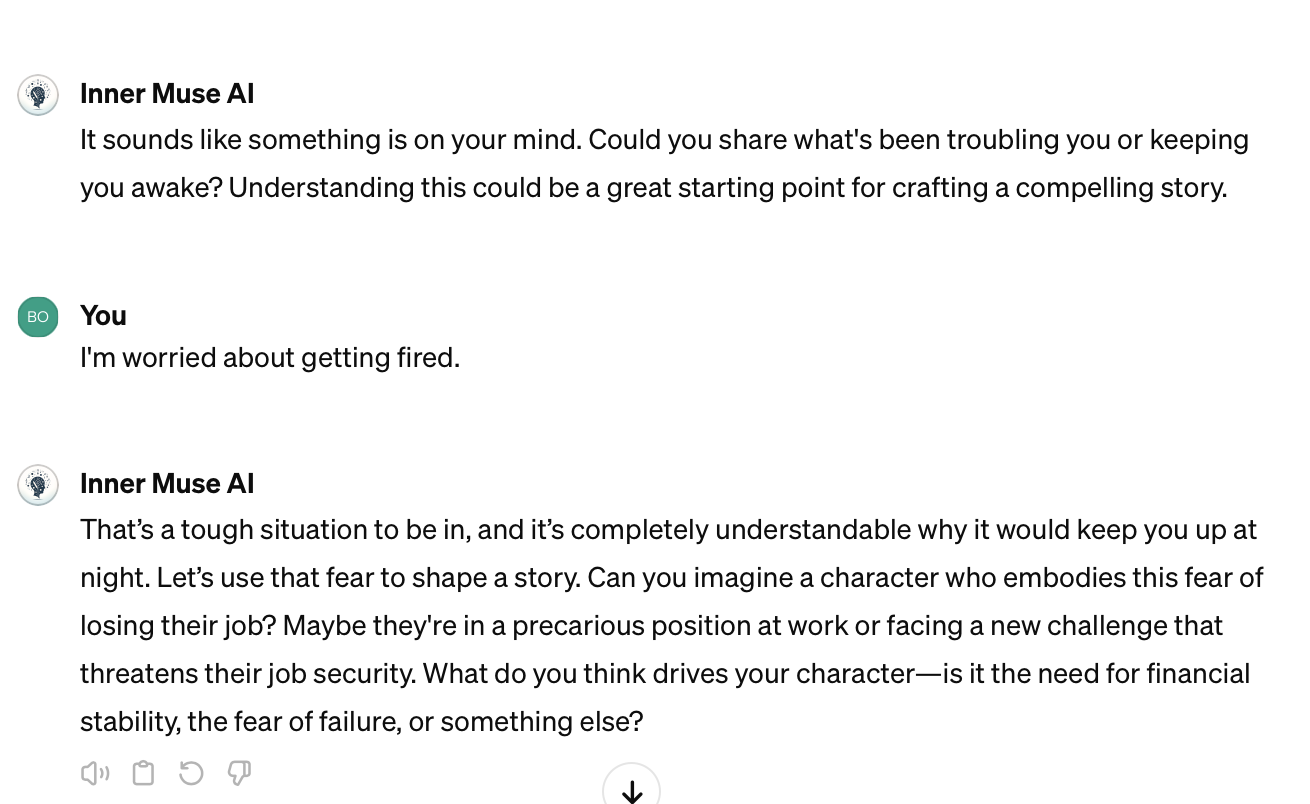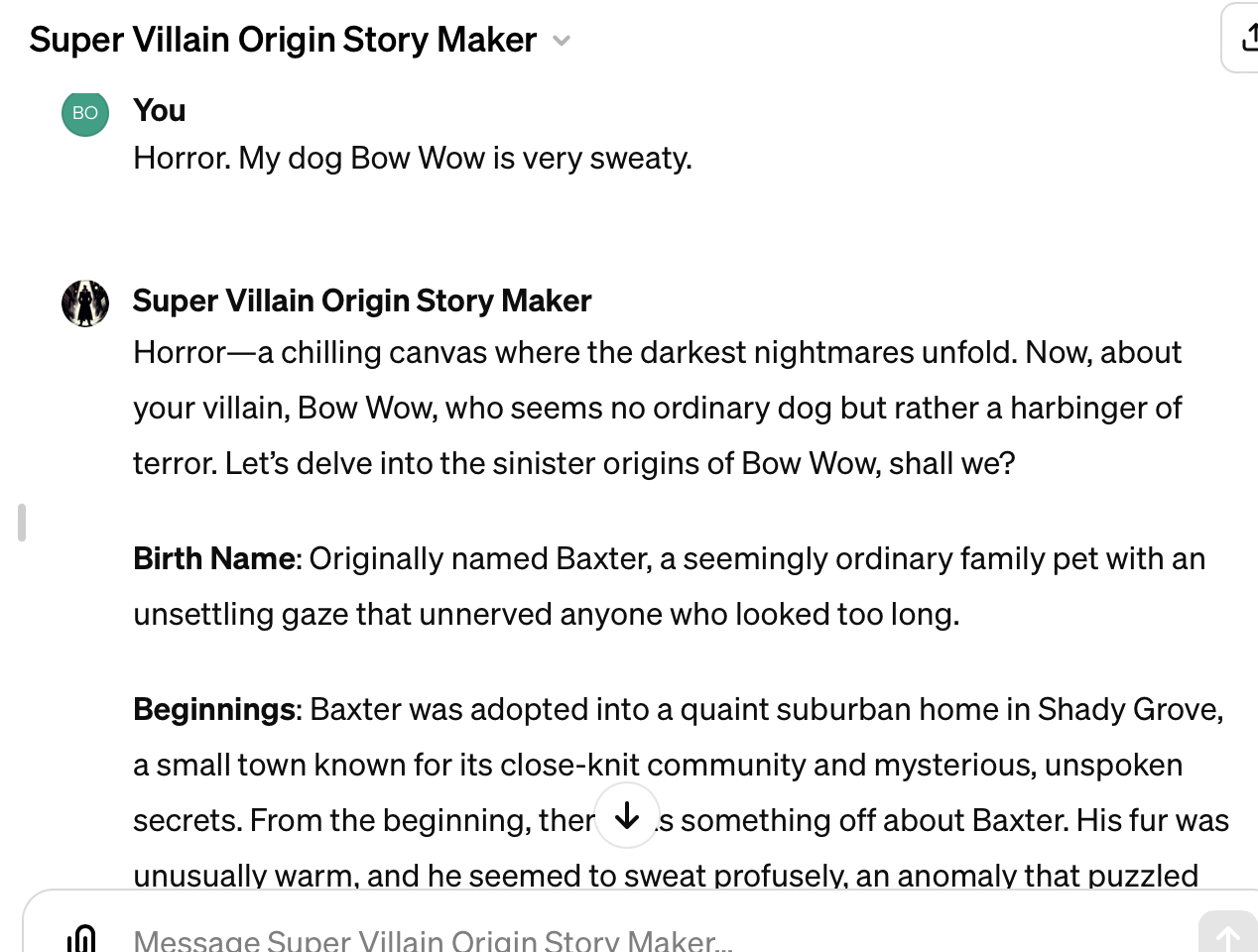Unlocking the Potential of Generative AI in Writing: Process and Product, a Powerful Duality
As an author and AI tool creator, I've discovered that the tools I build tend to fall into two distinct categories: Process AI and Product AI. This categorization is a new way of conceptualizing AI tools, and I believe it can help writers and storytellers better understand and utilize these powerful resources in a way that aligns with the values of creative and ethical AI.
Process AI tools guide users through a specific writing process, helping them explore ideas and develop their skills. These tools are designed to be like a creative writing coach, offering process-oriented suggestions, methodology, and inspiration without replacing your own creativity.
Product AI tools focus on generating content based on user input. They take ideas and transform them into compelling characters, stories, articles, or scripts, serving as a starting point for further creative exploration.
I recently created a tool called Inner Muse AI, which falls under the Process AI category. It begins by asking, "What's keeping you up at night?" and then leads the writer on a journey of self-discovery, helping them explore their personal fears and desires and transpose them into a protagonist, mining those emotions for storytelling gold. It’s a method for approaching a story, not a content generation tool.
In contrast, my Super Villain Origin Story Maker is an example of a Product AI tool that takes the barest hint of a suggestion from the writer, such as a character name and a personal quirk, and weaves a complex, emotionally rich origin story, complete with all the hope, hurt, and transformation that makes for a great tale. SVOS uses the generative qualities of AI to act as a master improviser.
While Product AI like Super Villain Origin Story Maker creates content for the user, it's not meant to replace the writer. Instead, it serves as a springboard in the form of a pre-rough draft, providing a starting point for the writer to take the story in their own unique direction. It is AI as muse, or perhaps the term “Artificial Muse” might apply.
Just as AI learns from us by replicating our writing and language patterns to craft original (if predictive) prose, we may also be learning from it. Young or emerging writers can particularly benefit from observing AI-generated content, much in the way an apprentice learns by watching a master creator at work.
Of course concerns about AI potentially supplanting human writers, or hindering and degrading the development of original language creation skills, are valid. Are we setting up a feedback loop where AI-writing replicates us and we replicate it back? Not exactly. I believe that most AI-generated content, especially in the context of thoughtful AI tools for writers, will be transformed by the human brain into something unique, just as a child sees a magnificent castle in a simple cardboard box.
Albert Bandura's Social Learning Theory supports this idea, emphasizing the importance of observational learning in the development of new behaviors and skills. The theory suggests that individuals do not merely copy what they observe, but rather process and adapt the information to suit their own understanding and context.
And let's be real. How many less-than-stellar English teachers did you encounter on your way to becoming the writer you are today? How many subpar books, films, plays, and op-eds have you consumed and somehow risen above to achieve your current level of skill and talent? The truth is, we learn from a wide range of sources, both good and bad. Some teach us how to write and some teach us how not to write.
The AI models you're likely to encounter in mid-2024 are already operating at a higher level of teaching and content generation than you may have been exposed to in the past, and these systems are only getting better. Rather than hindering growth, interacting with AI-generated writing tools can provide valuable insights and inspiration, ultimately contributing to the development of writers at any level.
As I continue to explore Process and Product AI, I'm excited by the prospect of combining the two to create even more sophisticated assistants that can both aid and teach humans to write better. While the future of AI in writing is still unfolding, I remain optimistic that these tools will ultimately serve to enhance, rather than replace, human creativity.
By understanding and leveraging the different roles of Process and Product AI, we can harness the power of artificial intelligence to support and nurture the writer’s imagination. This new conceptualization of AI tools is just the beginning of an exciting journey in the world of creative writing and storytelling.


